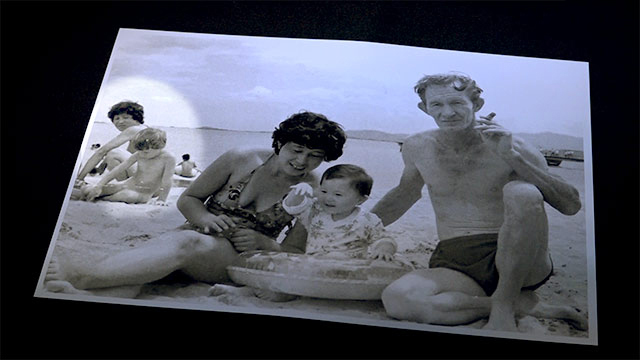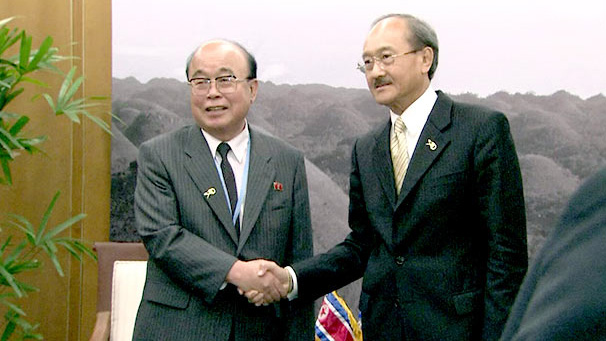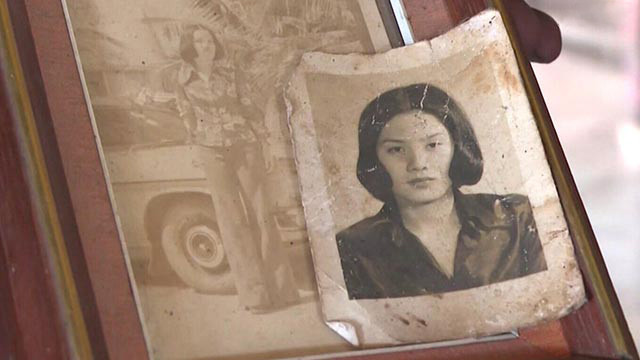The room frozen in time
Anocha Panchoi disappeared 42 years ago, at the age of 23. She grew up in the district of San Kamphaeng, a 40-minute drive from Chiang Mai in northern Thailand, but moved to Macau for work. One day, she told her roommate that she was going out to get her hair cut. But she never returned.
Two other women went missing on the same day in the city. This led Anocha's family to suspect she may have been involved in a crime, but they couldn't find any clues.
Back in San Kamphaeng, her former room looks just as it did the day she left for Macau, furnished with her clothes and a wall clock she had bought for her family.
"I'm going to take these clothes with me to show Anocha when I bring her home," says her nephew, Banjong Panchoi. The 51 year-old says he keeps the room clean so she can come back anytime.
Faded photo brings hope
Anocha's family had to wait more than 25 years for any sign that she was still alive. It came in 2005, when US deserter Charles Robert Jenkins, husband of former abductee Soga Hitomi, testified that he knew a female Thai abductee living in Pyongyang. He produced a photo showing what was believed to be Anocha behind his family on the beach.

The "wall" in the way
Banjong and his father, Anocha's brother, launched a campaign to bring her home. The top official in their district cross-referenced the information provided by Jenkins with documents about Anocha at the town office and confirmed that the woman in the photo was indeed Anocha.
But the campaign hasn't ignited public interest in the way similar ones have in Japan. One reason, says Warintorn Wuwongse, a former professor at Thammasat University who has long supported Banjong's efforts, is that "people frequently go missing or disappear in Thailand. So, the level of interest is low, particularly when it comes to a story of a woman working overseas."
And she says there may also be an economic motive for the authorities to ignore the issue. North Korea used to be a major buyer of Thai rice. "Bangkok didn't want to risk damaging relations with Pyongyang for one abductee," Warintorn says.
Why was Anocha abducted?
Former North Korean agents have testified that the abductions were motivated by the looming leadership change at the time. They say the country's founder, Kim Il Song, named his son Kim Jong Il as a successor in 1974. He started assigning him important jobs so he could cut his leadership teeth.
Professor Hiraiwa Shunji at Nanzan University, an expert on Korean issues, speculates that Kim Jong Il started taking advantage of the abduction program as a way to train his operatives.
"North Korean agents are presumably active across the world, including in Southeast Asia, Europe and the Middle East," he says. "So, the regime probably wanted to abduct people from each region to enhance information-gathering capacity."
Help from abroad
One of the Panchoi family's biggest supporters is a Japanese researcher who has lived in Thailand for over 20 years. Ebihara Tomoharu, a former lecturer at a university in Chiang Mai, learned of Anocha's story in 2005 and decided to help.
Ebihara keeps the family up-to-date about the latest information of the abduction issue through similar campaigns in Japan, and supports their efforts to get the Thai government and parliament involved. He also went with Banjong when he visited Japan to call for support in 2019.
In 2006 and 2007, Ebihara helped set up meetings between Banjong and the Thai Foreign Minister. The government initially responded by trying to engage North Korea on the issue, calling for the establishment of a joint working group to search for the missing. But their efforts were met with silence from Pyongyang. Since then, Thailand's volatile domestic political situation has made it difficult for Banjong and his supporters to gain any kind of traction for their campaign.

Banjong's father died five years ago, without ever seeing his sister again. But the family struggle goes on, and Banjong has now enlisted his 27-year-old daughter to help keep the campaign alive.
"With her help, I want to get Anocha back someday," he says. "Even if it's only her ashes, I want to bring her back."

